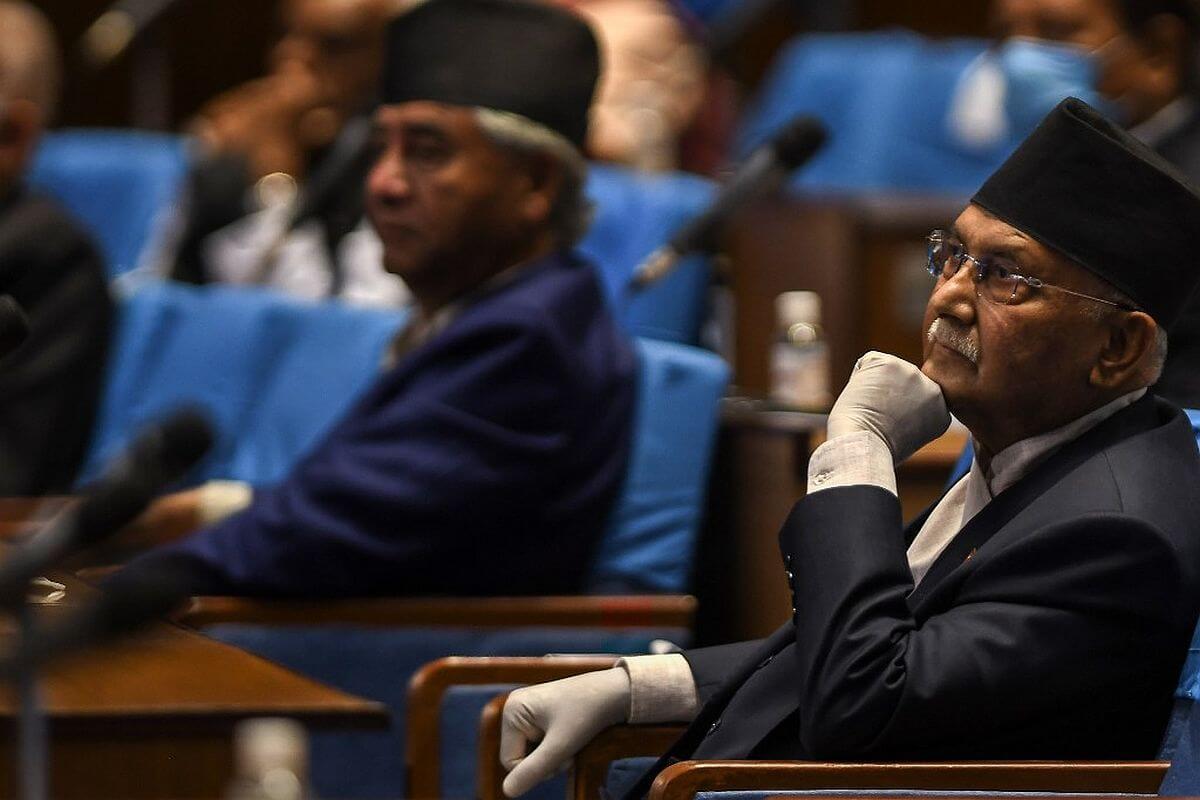Following Nepalese Prime Minister KP Sharma Oli’s decision to dissolve the Parliament, his party, the Nepal Communist Party (NCP), has ousted him as the party’s Chairman. He has been replaced by Madhav Kumar Nepal, senior NCP leader and ex-Prime Minister of Nepal. While making the announcement, Narayan Kaji Shrestha, the NCP spokesperson, said, “315 Central Committee Members have voted in favour of Madhav Nepal.” He also added that the party members have further decided to initiate disciplinary actions against the country’s Prime Minister.
Furthermore, Pushpa Kamal Dahal “Prachanda”, the country’s former Prime Minister and his rival in the NCP, replaced Oli as NCP’s Parliamentary Party leader. Expressing his gratitude to the lawmakers who voted in his favour, Prachanda said, “I will unify all the democratic forces and political parties to keep the hard-won political system and parliament lively and functioning.”
These decisions were taken during a meeting of the Prachanda-led faction of the NCP. Meanwhile, KP Oli, too, convened a party meeting, following which he announced the setting up of a 1,199 member committee to “organise the party’s general convention.” In the committee, he added 556 members, to strengthen his support in the panel, which was dominated by Prachanda’s supporters. However, experts say that this move may be in vain as any such addition would require the approval of the existing panel.
These developments come in response to the announcement made by Nepal’s President, Bidya Devi Bhandari, on Sunday, which called for the dissolution of the Parliament. He said that the decision had been taken upon the recommendation of the country’s Prime Minister KP Sharma Oli. As a result of this, Nepal will be conducting elections in 2021. The elections will be conducted in two phases, that is on April 30 and May 10. According to Surya Thapa, Oli’s Press Advisor, the move was instigated by the “conspiracies” that had “restricted” the Prime Minister’s ability to conduct his functions. In response to this, seven cabinet ministers resigned from their positions, calling the move “unconstitutional and undemocratic.” Moreover, the announcement also instigated protests outside Oli’s office, with demonstrators calling Oli’s decision a “constitutional coup.”
Following Bhandari’s announcement, 12 petitions were also filed before Nepal’s Supreme Court, challenging the constitutionality of Oli’s decision. According to the petitioners, Nepal’s constitution does not grant Oli the power to dissolve the Parliament. Dinesh Tripathi, a petitioner in the abovementioned case, said, “The Nepalese Constitution doesn’t allow the PM to go for a mid-term election by dissolving the House of Representatives if there is a possibility of forming the government from within Parliament.” While presenting his submissions before the court, he called Oli’s actions a “coup against the Constitution itself.” However, experts also believe that there may be a way to go around this constitutional obstacle. Consequently, Oli would basically have a free hand until the next elections, which are scheduled to be conducted in six months. Moreover, he will also have the power to extend this period by another six months.
The recent developments are indicative of a likely split in the NCP, with one faction being led by Oli and the other by Prachanda. In light of this, the Chinese ambassador to Nepal, Hou Yanqi, convened a meeting with President Bhandari to avoid the party being split into two factions. In the past, she has mediated between the two sides and convinced them to patch up. However, with the two factions’ differences deepening over the past few months, Yanqi has discussed the possibility of replacing Oli as the country’s premier, specifically if that keeps the party intact.
China Intervenes as Nepal’s Political Crisis Reaches Its Top Court
Nepal’s Communist Party faces an existential threat after Prime Minister KP Sharma Oli’s decision to dissolve the Parliament. His decision is now being challenged in the country’s top court.
December 24, 2020

SOURCE: AFP
